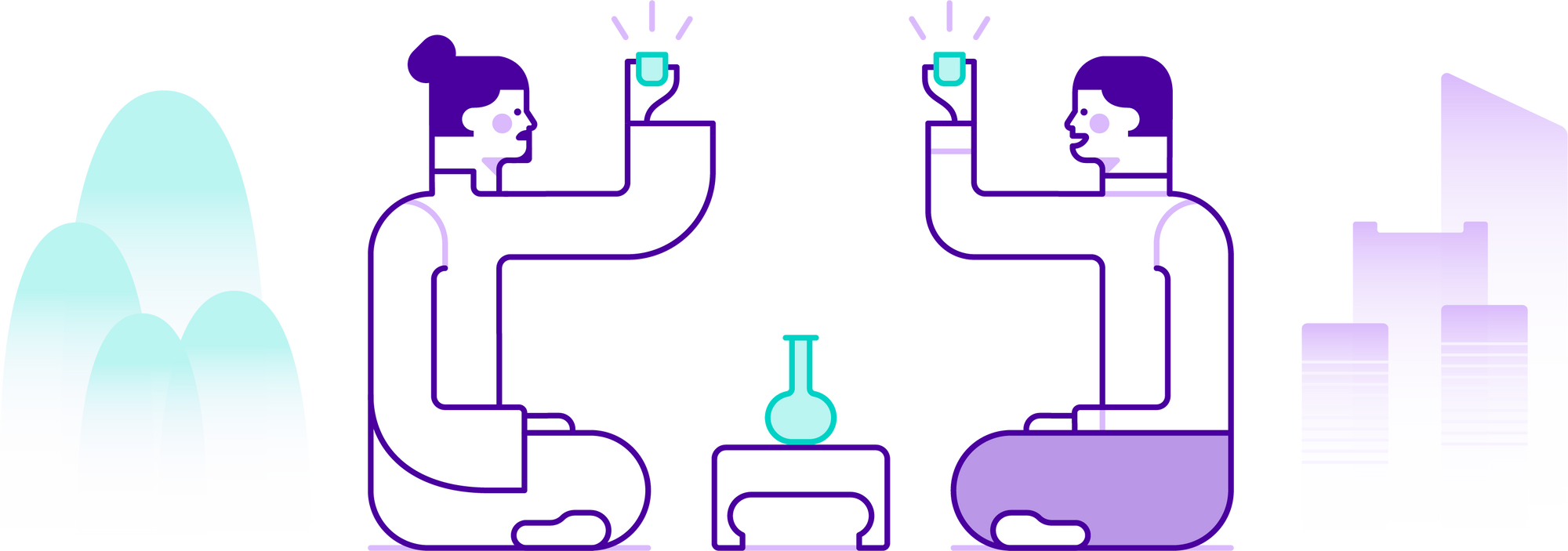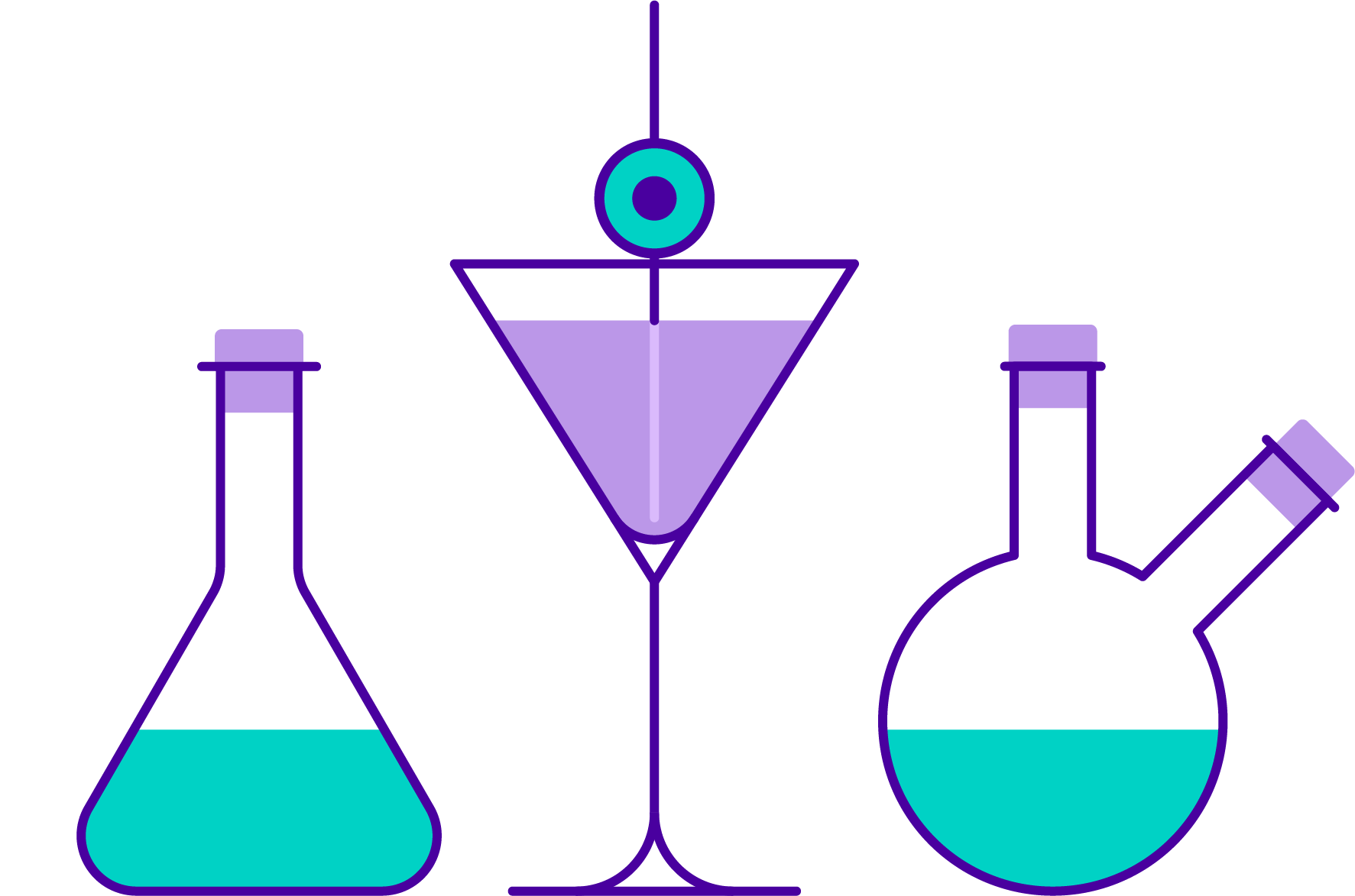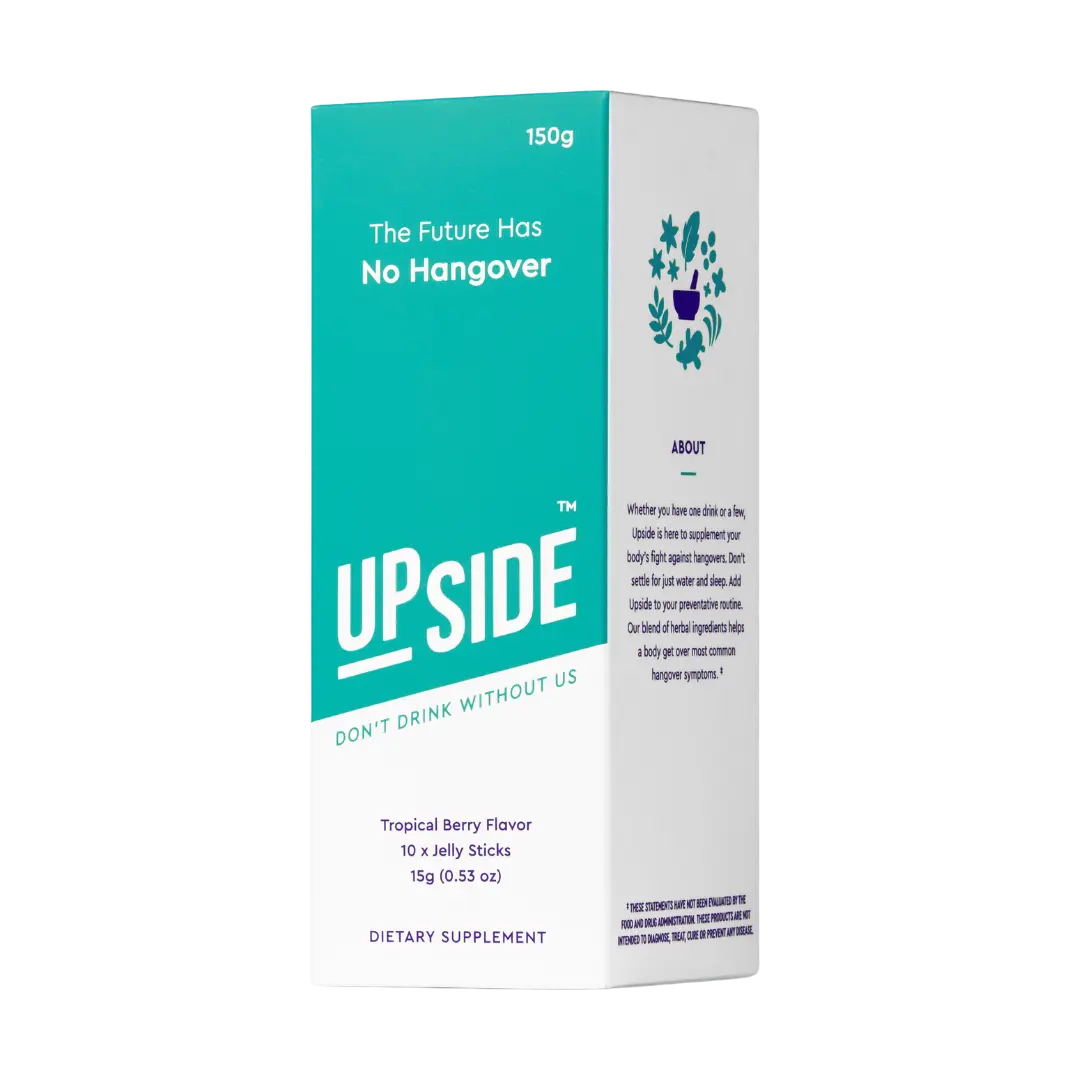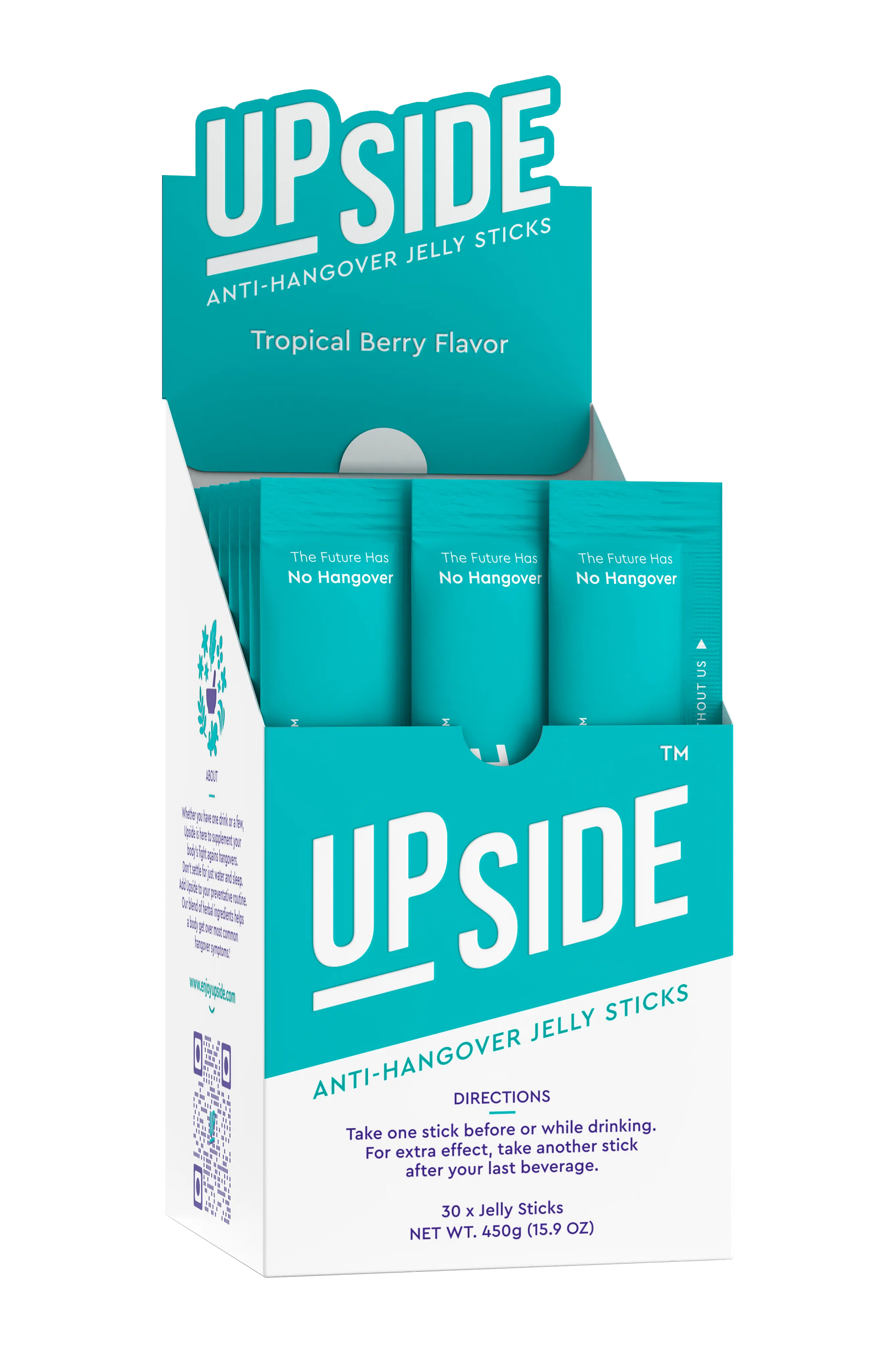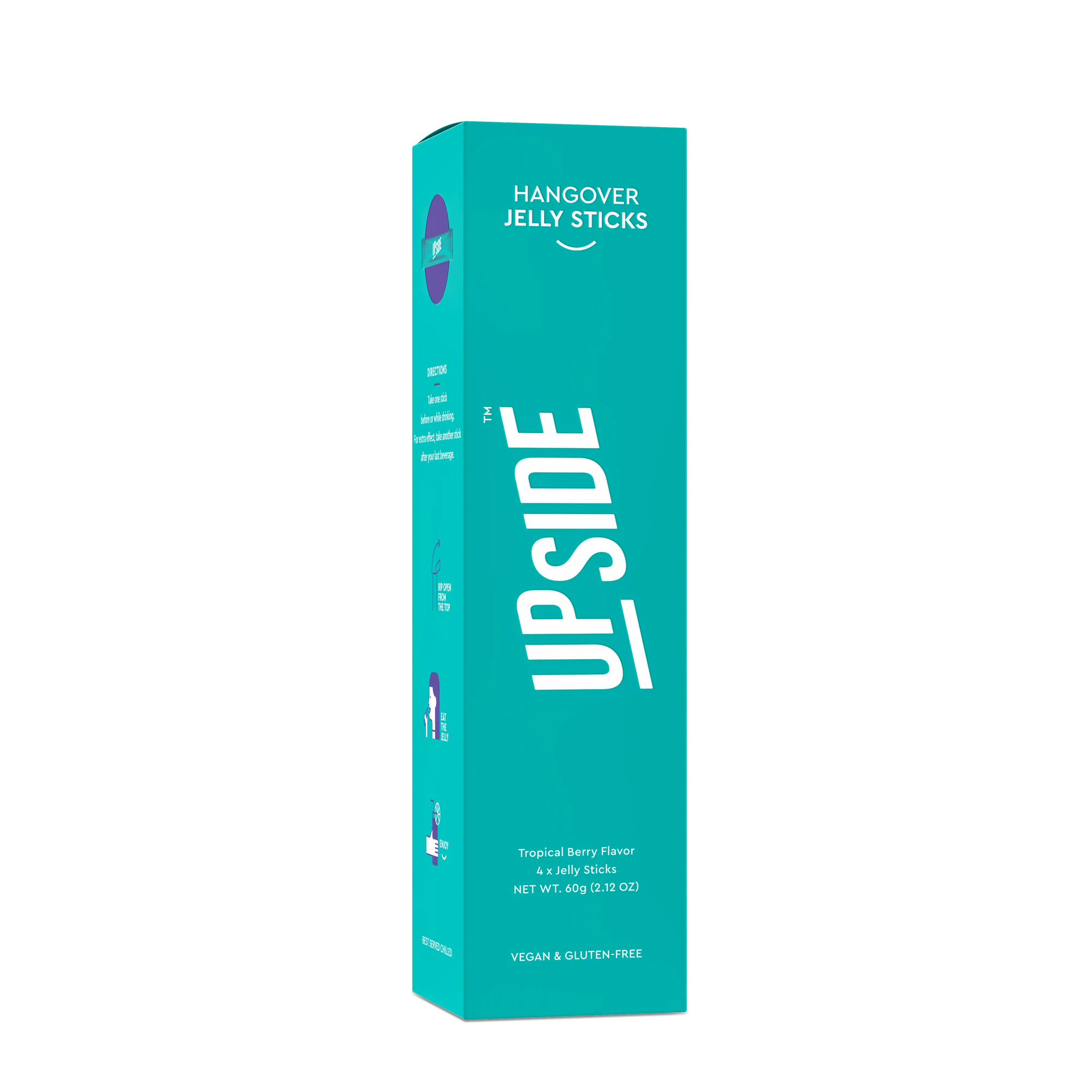For A Doubting Thomas: Here's the science.
How Do Hangovers Happen?
There are multiple cited physiological factors that can contribute to a hangover that include but are not limited to: alcohol withdrawal effects, toxic byproduct of alcohol metabolization, and different congeners present in alcohol. Our proprietary blend of herbal ingredients centered around Hovenia Dulcis focuses on combating the unpleasant symptoms of a hangover by supplementing your body while you drink and after the complete metabolization of alcohol.[1]
Consumed alcohol is metabolized into acetaldehyde—a known carcinogen— by alcohol dehydrogenase (ADH), cytochrome P450E1, and catalase. The resulting acetaldehyde is oxidized (metabolized) by aldehyde dehydrogenase (ALDH) to a less active acetate that our bodies can easily breakdown and dispose of as water and carbon dioxide.[2] But it is in this two-step process where our hangover culprit exists.
High concentrations of acetaldehyde within our bodies can have toxic effects, characteristic of a hangover, that need to be metabolized and safely disposed of.[3] And now, I bet you’re wondering, how can Upside help beat human biology? Simple. Hovenia Dulcis with the admixture of 10 different herbal ingredients are the powerhouse to help alleviate hangover symptoms.
How Hovenia Dulcis Can Help You.
Researchers discovered that Hovenia Dulcis does an excellent job promoting the clearance of alcohol. It does so by enhancing the activity of ALDH to quickly metabolize the acetaldehyde in our liver and blood for safe disposal.[4] Reducing blood acetaldehyde level and prolonged exposure means reducing total hangover symptoms! [1]
Additionally, Hovenia Dulcis plays an important role increasing our bodies anti-inflammatory mechanisms to deter the toxicity of alcohol. Our body naturally produces more anti-inflammatory cytokine IL-10 when we are out of our homeostatic state. This also happens naturally when we metabolize alcohol, but with Hovenia Dulcis, anti-inflammatory cytokine IL-10 production increases significantly. As a result, there is also a reduction in the pro-inflammatory cytokine IL-6 to bring our body back to homeostasis.
The effects of Hovenia Dulcis help our body’s homeostatic regulation of inflammatory response and promote accelerated oxidation—reducing the severity of hangover symptoms.[1]
What About the Mental Hangovers I Experience?
Alcohol can affect your central nervous system even if you have less than three drinks. The feeling of anxiety, sleepiness, and lack of concentration are the result of our brain counteracting the ingested alcohol. Alcohol is an indirect GABA agonist that binds and activates our GABA receptors which play a vital role regulating our feeling of sleepiness and relaxation. Alcohol tricks the brain to cause an imbalance of GABA, leading to a potent rebound once the alcohol has left our body.
The flavonoid compound dihydromyricetin, isolated from Hovenia Dulcis, is the key to help us mitigate alcohols depressant nature on our central nervous system. Dihydromyricetin is a natural GABA receptor agonist and fights at the cellular level to inhibit alcohol from binding onto our GABA receptors.[4][5][6] The combination of actions helps limit alcohol’s cellular interference while simultaneously accelerating its metabolization.
- https://www.sciencedirect.com/science/article/pii/S0378874116321328?via%3Dihub
- https://pubs.niaaa.nih.gov/publications/aa72/aa72.htm
- https://pubs.niaaa.nih.gov/publications/arh22-1/54-60.pdf
- https://www.ncbi.nlm.nih.gov/pmc/articles/PMC4125717/
- https://www.ncbi.nlm.nih.gov/pmc/articles/PMC3292407/
- https://www.ncbi.nlm.nih.gov/pmc/articles/PMC5602609/

